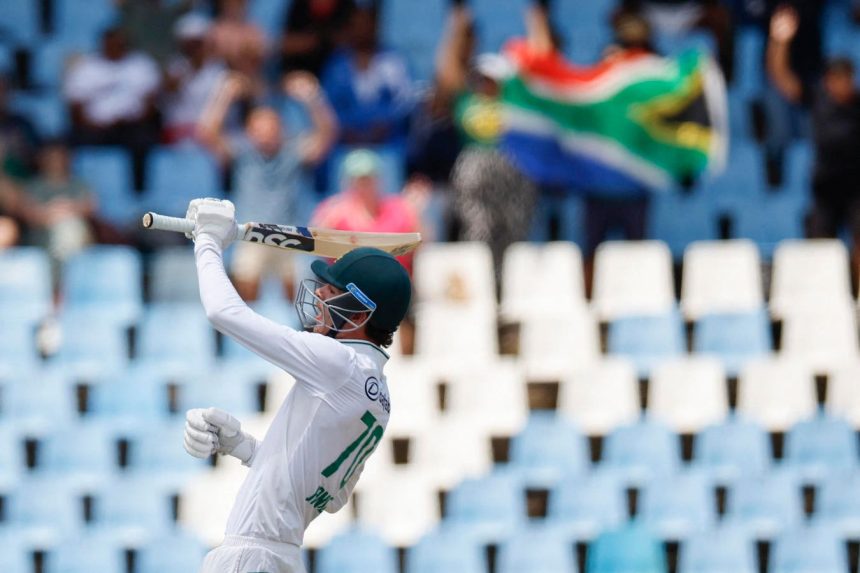South Africa, a nation synonymous with cricketing heartbreak, found themselves teetering on the precipice of another devastating loss in the first Test against Pakistan. Chasing a modest target of 148, a victory that would secure their place in the World Test Championship final seemed to slip away as they slumped to 99 for 8. This near-collapse evoked memories of past agonizing defeats, including the recent T20 World Cup final loss just six months prior. Facing Pakistan, a team known for their mercurial brilliance, on a day when their bowling attack was firing on all cylinders, South Africa appeared destined for another chapter in their tragic cricketing narrative. The specter of past failures loomed large, threatening to resurrect the old, unwelcome labels that have haunted South African cricket for decades.
However, against all odds, an unlikely partnership between lower-order batsmen Kagiso Rabada and Marco Jansen blossomed. They defied the pressure, the challenging conditions, and the formidable Pakistani attack to forge a remarkable 51-run partnership, steering South Africa to an improbable victory. The scenes of jubilation that followed were a testament to the relief and elation felt by a nation yearning for a major cricketing title. While the sparsely populated stands at Centurion were a stark reminder of the challenges facing Test cricket, the significance of the victory for South African cricket could not be overstated.
South Africa’s journey to the WTC final has been marked by both resilience and controversy. Their qualification was secured through a series of two-Test matches against smaller nations, a schedule that raised questions about the fairness of the competition. The nine-team WTC format, with its inherent logistical and practical challenges, has been the subject of criticism, particularly regarding the lack of home-and-away fixtures and the exclusion of high-profile contests like India versus Pakistan due to political tensions. Furthermore, the decision to prioritize their newly established T20 franchise league, sending a weakened squad to New Zealand, drew criticism from some quarters, questioning their commitment to the longer format.
Despite the controversies, South Africa’s qualification represents a significant achievement for a nation striving to establish itself among cricket’s elite. Their consistent performance in Test cricket since readmission in 1992, including the memorable run of success under Graeme Smith’s captaincy, underscores their dedication to the longest format. The triumph against Pakistan provides a much-needed boost for Test cricket, showcasing the competitiveness of a non-traditional cricketing power. It also adds intrigue to the ongoing India-Australia series and Australia’s subsequent tour of Sri Lanka, as the race for the second finalist spot intensifies.
The prospect of a final between South Africa and Sri Lanka, while potentially less appealing to broadcasters and administrators, would be a compelling narrative for the sport. It would highlight the global reach of Test cricket and underscore the importance of the WTC in providing opportunities for nations outside the traditional powerhouses. Despite its flaws, the WTC has injected much-needed excitement into the Test cricket landscape, offering a pathway for smaller nations to compete on the global stage.
Ultimately, South Africa’s qualification for the WTC final represents a chance for redemption and a symbolic victory for a nation burdened by past disappointments. The upcoming final at Lord’s, the hallowed ground of cricket, offers an opportunity to exorcise the ghosts of past failures and finally claim a major cricketing title. It’s a testament to their perseverance and a validation of their commitment to Test cricket in a rapidly evolving cricketing landscape dominated by the financial allure of T20 leagues. The WTC final, for South Africa, is more than just a cricket match; it’s a chance to rewrite history and etch their name among the champions of the game.



